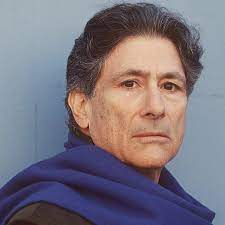Said, Edward

Bio: (1935-2003) American literary and political theorist. Edward Said was born in the territory of British Palestine and moved to the United States during high school. He holds a doctorate in English literature from Harvard University and a degree in comparative literature from Columbia University. Said is best known for his critique of Orientalism and for creating an interdisciplinary field of post-colonial studies.
In his book Orientalism (1978), Said uses the theories of Gramsci and Foucault to explore the way the Orient was portrayed in Western culture, from ancient to modern times. He studies the depictions of the Orient given by travel writers, colonial administrators, military leaders, writers, artists, and others. Said sees the creation of knowledge and stereotypical images of the Orient in the West as a discourse in Foucault's sense. Representations of the Orient by Westerners are discursive practices that fixate on the meaning of the objects through which knowledge and truth are arrived at.
Fixing the meaning of the Orient has four main consequences. The first is to create an image of the eternal, static, and homogeneous Orient. The second is to portray the Orient as the "Other", which is essentially opposed to the West, and the main opposition is that the Orient tends to create Eastern despotisms, while the West is prone to democracy. The Orient is presented as something that is a constant danger to the West and its values. The third consequence is the creation of limitations in what can be said, thought, and done about the Orient. In this way, Orientalism creates intellectual and cultural means for the colonization of the Orient by the West. Orientalism directly influenced the political attitude of the West towards the Orient. In the end, the last consequence is that Orientalism prevents the productive exchange and interrelations of the West and the East. Said believes that the earlier discourse of Orientalism must be overcome by emphasizing the universal human values of all cultures, but also by respecting and understanding cultural differences, both between the West and the Orient, and differences within the Orient itself.
Main works
Joseph Conrad and the Fiction of Autobiography (1966);
Beginnings (1975);
Orientalism (1978);
The Question Of Palestine (1979);
Literature and Society (1980);
Covering Islam: How the Media and the Experts Determine How We See the Rest of the World (1981);
The World, the Text and the Critic (1983);
Musical Elaborations (1991);
Culture and Imperialism (1993);
Nationalism, Colonialism, and Literature (1998);
Out of Place: A Memoir (1999);
Humanism and Democratic Criticism (2004).

